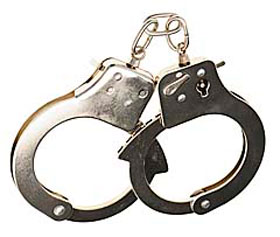Changes in the criminal case concerning 19 December “mass riot”
On 2 April, the Young Front activist Ales Kirkevich and
a 27-year-old programmer Andrei Pratasenia received official charges under Article
293, part 2 of the Criminal Code, “mass riot”, the press-center of the Ministry
of Internal Affairs informs. Kirkevich has been kept in custody since 28
January, Pratasenia – since 9 February.
Andrei Dzmitryieu, Aliaksandr Fiaduta, Nasta Palazhanka, Vital Rymasheuski and
Siarhei Vazniak used to be charged under Article 293 as well. However, last
week the charges to them were mitigated – now they are accused under Article
342 which envisages up to 3 years of imprisonment versus 8 years according to
Article 293. Andrei Dzmitryieu received a summons from the KGB to be
interrogated on 2 April.
On 2 April the lawyer met with one of the accused, Siarhei Martsaleu, for the
first time since 29 December. The state of his health and the general situation
were a matter of great concern and anxiety, as only 3 letters were received by
his grand-mother during all this time. According to the lawyer, Siarhei looks
well and is quite self-confident.
On 4 April charges were also changed from Article 293 to Article 342 to the coordinator
of the European Belarus civil
campaign Andrei Bandarenka, Andrei Sannikau’s wife Iryna Khalip, the head of
Mikalai Statkevich electoral headquarters Siarhei Martsaleu, the co-Chair of
the Belarusian Christian Democracy Pavel Seviarynets. Bandarenka has been kept
in custody since 19 December, Seviarynets – since 20 December, Martsaleu –
since 23 December. Khalip – since 19 December till 29 January, after which she
has been placed under home arrest. The charges to some more prisoners may be
mitigated as well. At the same time, 8 people were convicted under Article 293.
Some of the accused, including the political scientist Aliaksandr Fiaduta and
the former presidential candidates Vital Rymasheuski, Uladzimir Niakliayeu and
Andrei Sannikau, started studying the materials of their cases. As said by
Niakliayeu’s counsel, Uladzimir Bukhshtynau, Niakliayeu’s case consists of
about 30 volumes.
On 5 April the Minsk City Court will consider the cassation complaints against
the verdicts given to some other figurants of the case, Aliaksandr Atroshchankau,
Aliaksandr Malchanau and Zmitser Novik, who were sentenced to 4, 3, and 3.5
years of imprisonment under Article 293 of the Criminal Code.
Police continue looking
for an activist of the European Belarus,
Aliaksei Sianchyla, who left Belarus
after the arrest of his friend Siarhei Kazakou in connection with the “mass
riot” case. On the eve of 25 March they tried to hold a warrant at the
apartment of Aliaksei’s parents, but failed to present a warrant, that’ why the
parents didn’t let them in. On 25 March, the Freedom Day, the police also came
to the entrance door of the apartment and stood there for several hours.
See http://spring96.org/en/news/41387
to get more information about figurants of the 19 December “mass riot” criminal
case.
Reference note:
Article 293. Mass riot
1. The organization of the mass riot which was accompanied with violence
against people, demolition, arsons, defilement of property and armed resistance
to representatives of the authority, -
is punished by 5-15 years of imprisonment.
2. Participation in mass riot which manifested in the direct implementation of
the actions that were mentioned in part 1 of the article, - is punished by 3-8
years of imprisonment.
Article 342. Organizing or preparing the actions that breach the public
order or taking active part in these actions
1. Organizing group actions that breach public order and that are connected with
clear disobedience to lawful demands of representatives of the authorities or
that hinder public transport operations or the work of enterprises,
institutions or organizations, or taking active part in these actions unless
elements of a more serious crime are present –
is punished with by a fine,
or up to 6 months of arrest, or up to three years of restriction of liberty, or
imprisonment for the same term.
2. Training or other form of preparing individuals to take part in group
actions that breach public order, as well as financing or other material
backing of similar activities unless elements of a more serious crime are
present –
is punished with up to 6 months of arrest, or to two years of imprisonment.


















